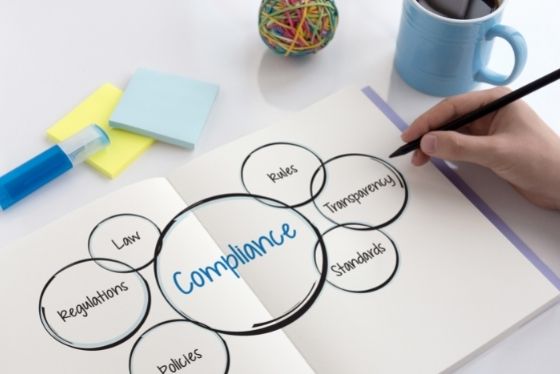Overview:
Even though a company be regarded as a separate entity in the eyes of the law, the requirements for such entity shall be determined and regulated by the concerned legal regime where the company is incorporated. In such cases, the companies act of 2013, the income tax act etc., have, time and again, ensured that such a corporate entity makes sure the legal conditions and rules are complied with adequately from time to time. This article will give a brief overview of various legal compliances under the companies act and also under the tax due diligence that is to be ensured by a company in India.

Statutory compliances:
As part of statutory compliance, a company shall be required to follow the rules and regulations of any law in place. In this case, since it is a corporate entity, we talk about a company’s requirements to be complied with regularly, which are provided under the companies act of 2013. We exclude the compliances such as pre-incorporation requirements such as the number of persons for a private or a public company or a one-person company. What we will be looking at is the compliances post the incorporation of a company that is to be compulsorily complied by any separate legal entity under the Companies act of 2013.
These two compliances form part of statutory registers that a company should possess under the companies act of 2013.
- Section 85 of the act talks about the company’s register of charges. It requires the company to keep the register of charges which includes the total charges created on the properties or on the assets of the company, and indicate such particulars in the prescribed form and in such manner. Such register shall always be kept at its registered office , and it must be open for any inspections during the business hours by any member of the creditor on payment of fees or by any other person on the payment, subject to reasonable restrictions.
- Similarly, section 88 of the act deals with the register of members of the company. Subsection 1 states that then it shall be the duty of every company to keep and maintain the registers, which include the – register of members indicating each separate class of equity and the preference shares held by each of the members residing within or outside India, register of debenture-holders and lastly the register of other security holders.

Annual Return:
Annual General Meeting:


Tax due Diligence:
This makes sure that a corporate entity complies with legal compliances. During any merger and acquisition, it is important to pay the taxes for those transactions, which gave some amount of capital gains to the buyer. So if there is any benefit received out of such merger transactions or from the sale of assets of the company, then such transactions require tax liability for the buyers.
